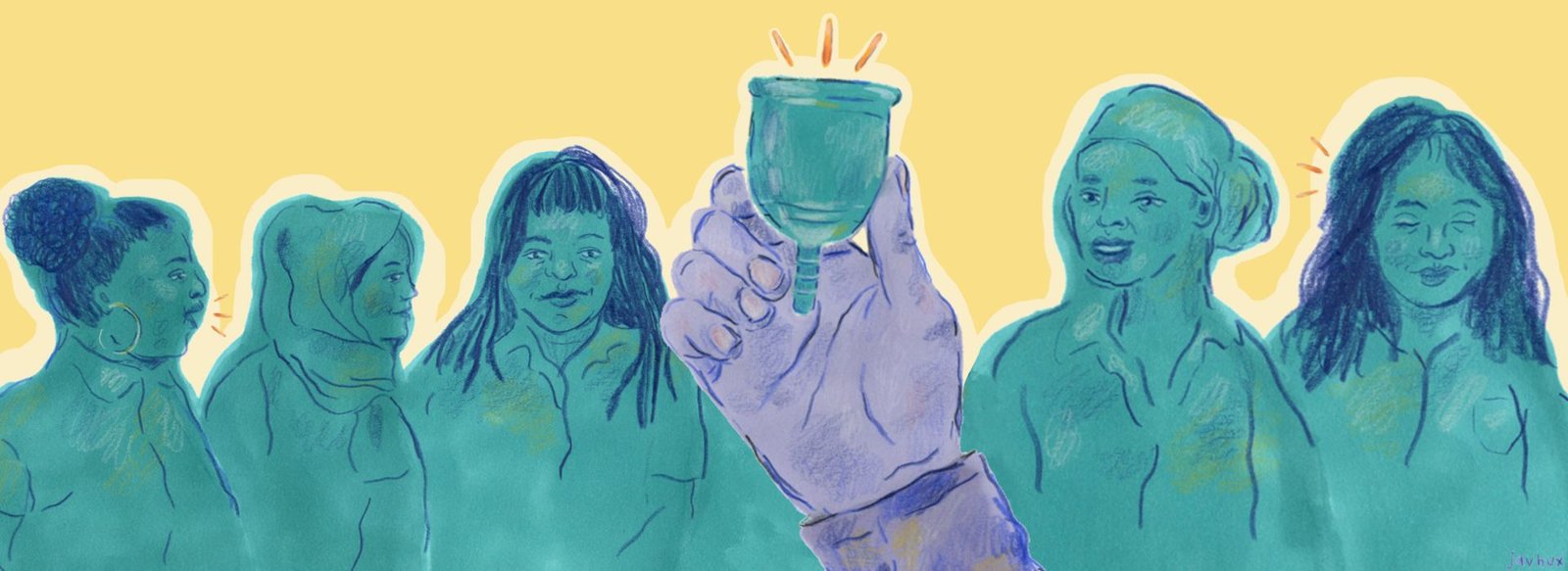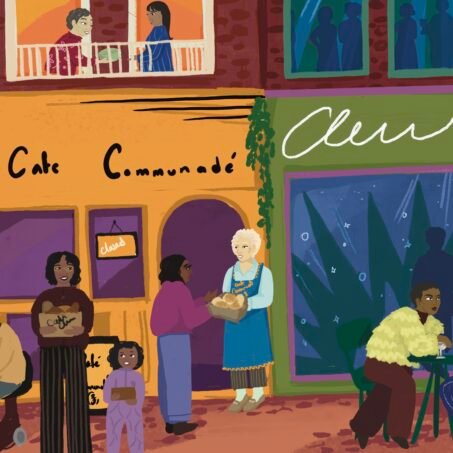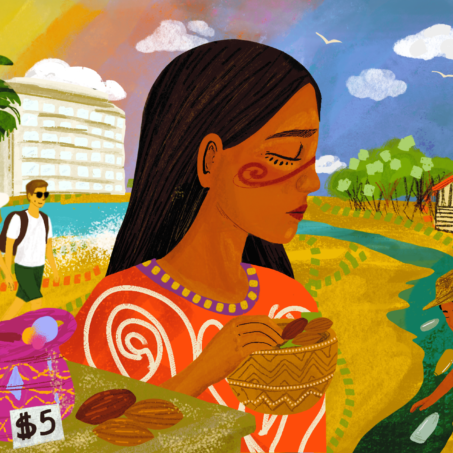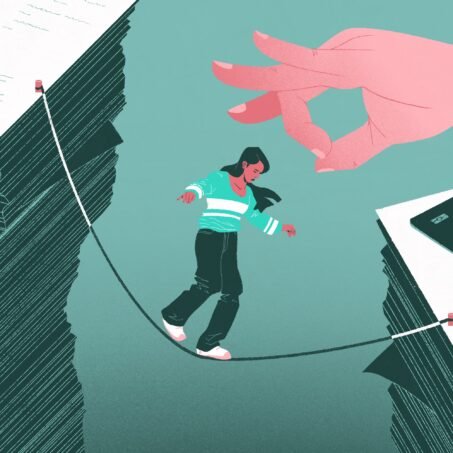DivaCares is a partnerships and programming initiative of Diva International Inc., maker of the DivaCup. At the crux of the brand lies the foundation of period equity. “The DivaCares program was created in order to address the systemic issue of period poverty, with three main areas of action: education, advocacy and access, to help create change in the lives of those who experience periods… DivaCares is working to create a world where menstruation is a fact of life, not life-limiting.” (Carinne Chambers-Saini, CEO and co-founder of Diva International Inc.) shado had the opportunity to speak to programme leaders across Canada – Malindi Ayienga, founder of Diva Day; Leanne Hughes and Deepa Ahluwalia of Waterloo Region District School Board; and Suzanne Lively, founder of Friendly Divas; and Alexis Biermann, DivaCares Manager & Positivity Officer at Diva International – to delve deeper into the problems of period poverty and how DivaCares are tackling the issue.
Period poverty, and the work being done to alleviate it, operates at the intersection of feminism, class, race, culture, justice – differences which exist in every country. While DivaCares operates in different countries around the world, their work in addressing period poverty starts at home within their local Canadian communities. The assumption that period poverty doesn’t exist in developed countries is a myth the brand has been busting open since DivaCares’ conception, and their on-the-ground activism speaks to the importance of starting the revolution on your doorstep.
At the heart of DivaCares is a focus on period dignity first and foremost. This, explains Malindi, is “the right that every period-haver has to a healthy, clean and comfortable menstruation experience.”
Within the Canadian context and across the globe, this standard of dignity is not the experience many women face. Along with a lack of access to basic period products, Suzanne explains that many who seek access to products from services face “returning monthly to ask for free period product, such as pads and tampons, if they are lucky enough to find a place offering free period product.”
Problems of physically getting access to menstrual products is not the only barrier – there is also the pervasive problem of stigma which silences people from seeking the products they need. “Due to stigma and shame associated with periods”, Leanne and Deepa recognise that “many students who menstruate do not feel comfortable asking for products when they need them, or even being excused to go to the bathroom during class.”
Although understanding that a menstrual cup may not always be the best option for every person, what DivaCares has been able to offer is education around alternatives and suggestions which place each person’s agency and personal choice at the core. As Malindi explains, by giving people a choice, ‘‘they can be in control.’’ As an alternative for some, menstrual cups, which last up to 12 hours, can be inserted in the morning and removed after school – thus removing the need to replace products throughout the day. Cups can offer some a longer-term solution to the need for seeking monthly period products, whilst also offering a more discrete alternative.

To understand period poverty – and therefore to be able to efficiently tackle it – requires an understanding of poverty as a global endemic. Those living below the poverty line come up against barriers to almost every basic human need; food, shelter, clothing – and this of course means period products, too. Period poverty can therefore be invisibilised in light of other urgent needs, where in fact it should be rightly recognised as parallel. “Most people do not consider the fact that if someone does not have money for food then they also cannot afford period products. Menstruation is not a luxury and hygiene should not be a privilege,” explains Suzanne. They are based in Nova Scotia, the province with the highest rate of food insecurity in Canada, affecting around 1 in 6 households. Understanding poverty within differing Canadian contexts is vital to the work being done by DivaCares.
Food insecurity is intimately linked to period poverty. “People who menstruate are forced to make choices about whether they can afford period products that week or not. We often hear about food drives and making donations of food to the food bank, but rarely do people understand that period products are also required at food banks and shelters.” (Leanne and Deepa)
One reason for the overwhelmingly under-catered need of period products is the stigma within which menstruation, and women’s health, is steeped. The resultant effect directly impacts generations of people who have periods – and one thing DivaCares is committed to is education at a school level to encourage a trickle-up effect. “There needs to be more education about these things, and we need to start with our young people,” explain Leanne and Deepa. This is increasingly pertinent when considering the direct impact of period poverty on those at a school level. Young people are missing out on education, for a number of days per month, because they are menstruating but do not have access to period products.
Free Period, a movement championed by Amika George in the UK which has enforced structural change at a political level, has meant that “from early 2020, every child in England will be able to access menstrual products when they need them, as free products will be provided in all schools and colleges” (Free Periods spokesperson). It is a movement which is increasingly gaining momentum in Canada with the support of DivaCares and where communities across the world are recognising that there is an undeniable need to address this and do better.
“As a school board, we decided to send out a survey to our secondary schools to find out if period poverty is a problem in our system. We asked Principals, Secretarial staff, Guidance Counsellors, Phys-Ed Teachers and Child and Youth Workers if this is something they were aware of. The results were very telling: 88% of our schools reported that period poverty exists in our schools”. Leanne and Deepa are adamant: “We have to be intentional about asking the question.”
This isn’t to say that there isn’t hope, Malindi goes on to say that “any shame or hesitancy that people may have when it comes to talking about menstruation is overshadowed by the need for change” – and initiatives such as DivaCares help to continue this conversation about change.
In the space of two years, it is amazing to see the progress being made around the acknowledgement, and subsequent focus on the alleviation, of period poverty. Since Friendly Diva’s initial campaign in Nova Scotia in 2017, Suzanne Lively has seen “Period Poverty and Menstrual Equity make national headlines with Initiatives at all levels of government across the country being introduced to tackle these issues.”
This momentum is not isolated to the government level however, with many initiatives and campaigns starting and being fueled by grassroots movements and young girls themselves. Leanne and Deepa explain the responses they have met at the community level as being integral to the success and growth of the movement; “We have found that many people who do not live in poverty have no idea that period poverty is an issue or that it even exists. But once they learn more about it, we have found that people are really on board with doing something about it.”
With any movement however it is crucial to recognise, educate and respond to the intersections of class, race, and culture.
Within conversations of period poverty in Canada this is also true. Malindi, in explaining her approach to the movement and to education around menstruation, embodies this; “Something I always keep in mind when visiting other people’s spaces, is that I am there with something to give, but I must always be listening because I have so much more to learn.”
This is echoed by Leanne and Deepa, with their work through education in schools with young girls. The inclusion of young girls within this conversation makes room for a focus and inclusion of multiple voices and experiences that are needed to be heard to fully understand the complexities and intersectionalities of period poverty. “Within schools, it is important to engage students in these conversations. Providing them with opportunities to discuss issues of period poverty and empowering them to take action is critically important if we are going to educate across intersections.” It is these mini revolutions, which start from a sense of agency and education which is spearheading the movement of change driven by choice and open conversation around menstruation.
On the 29th of October, Nova Scotia held Canada’s first Period Poverty Summit, sponsored by Diva International. It is of utmost importance to view period poverty as a cross-community issue, not one limited to specific demographics. The summit included speakers and organizations from different communities and across different fields talking through on-the-ground issues which must be addressed at a policy level. An intersectional approach is, of course, crucial. As Suzanne explains, ”We need voices from all communities to help us understand the similarities and differences between people, so we can all come up with the best solutions to eliminate period poverty for everyone.” Alexis Biermann, DivaCares Manager & Positivity Officer at Diva International echoed these sentiments by saying that “Up to now the conversation around period poverty and menstrual equity has been heavily shaped by the US social, economic, and political atmosphere. Having events, like this summit, being held in Canada are critical to advancing our understandings of these issues within a Canadian context and bring a wider range of voices and experiences to the table. One of the best learnings to come out of the summit was the fact that period poverty cannot be solved at the individual or organizational level and will require sincere and consistent attention from our government in order to fully move the needle towards menstrual equity.”
“Half of the population menstruates. And within that population, you will have those who experience period poverty. Period poverty impacts people regardless of age, race, culture, sexuality, gender identity and ability. We absolutely need to view this as a cross-community issue. And if we are going to abolish the stigma and shame that is associated with periods, this conversation needs to include everyone, those who menstruate, and those who don’t.” (Leanne Hughes/Deepa Ahluwalia)
“It is imperative that everyone be a part of the conversation surrounding period equity because it ultimately affects everyone. If half the population is experiencing this natural, monthly, life giving phenomena, and governments choose to tax period products as luxury items, or deny access to period products to those who can’t afford them, then we are systematically oppressing half the population of our planet.” (Malindi Ayienga)

Join our mailing list
Sign up for shado's picks of the week! Dropping in your inbox every Friday, we share news from inside shado + out, plus job listings, event recommendations and actions ✊
Sign up for shado's picks of the week! Dropping in your inbox every Friday, we share news from inside shado + out, plus job listings, event recommendations and actions ✊
We are excited to see the outcomes of the summit, which signals a desire for positive change across all levels of society.
To help further signal a desire for positive change across all levels of society, Diva International has been working on “Pandora’s Box”, a feature-length documentary film. Produced and directed by an all-female crew, it takes us on a global journey through India, Uganda, the UK, and North America to explore the cultural and social subjugation of people who menstruate. Pandora’s Box asks us to lift the lid on menstruation and truly consider how eliminating period stigma can help create gender equality. Pandora’s Box premieres at the Whistler Film Festival on Friday, December 6th.
To find out more about DivaCares program head to the website and to buy a cup of your own head to the website here










